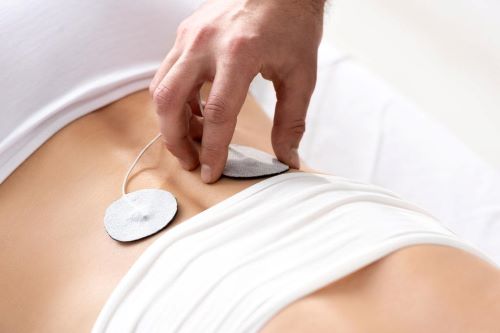
Physiotherapy services in Guernsey such as Castel Physio are typically offered by both private practices and the public health system. These services aim to help individuals recover from injuries, manage chronic conditions, and improve overall mobility and function.
In Guernsey, physiotherapists are highly trained healthcare professionals who assess and treat a wide range of musculoskeletal and neurological conditions. They use various techniques such as exercise therapy, manual therapy, electrotherapy, and education to help their patients achieve their goals.
Guernsey has both public and private healthcare sectors, so individuals may have the option to access physiotherapy services through either route. The Guernsey Health and Social Services Department provides physiotherapy services through the Princess Elizabeth Hospital, which serves as the main public hospital on the island.
Private physiotherapy practices also offer a range of services, often providing more flexible appointment times and tailored treatment plans. These practices may offer specialised services such as sports rehabilitation, women’s health physiotherapy, paediatric physiotherapy, and ergonomic assessments.
To find specific information, including contact details, services offered, and appointment availability, you can visit the websites of local physiotherapy practices or contact the Guernsey Health and Social Services Department directly. Additionally, local directories or healthcare listings may provide further information on physiotherapy services in the area.
Physiotherapy Services Offered in Guernsey

Physio services typically offer a wide range of treatments aimed at improving physical function, reducing pain, and promoting overall well-being.
Assessment and Diagnosis: Physiotherapists conduct comprehensive assessments to identify the root cause of musculoskeletal or neurological issues. They use various assessment techniques to understand the patient’s condition and develop appropriate treatment plans.
Manual Therapy: This includes hands-on techniques such as joint mobilisations, soft tissue massage, stretching, and manipulation to improve mobility, reduce pain, and enhance tissue healing.
Exercise Therapy: Physiotherapists prescribe tailored exercise programs to strengthen muscles, improve flexibility, enhance balance, and promote overall physical fitness. These exercises are often crucial for rehabilitation after injury or surgery.
Electrotherapy: Modalities such as ultrasound, electrical stimulation, and laser therapy may be used to manage pain, reduce inflammation, and promote tissue healing.
Education and Advice: Physiotherapists provide patients with information about their condition, injury prevention strategies, ergonomics, and self-management techniques to empower them in their recovery process.
Sports Rehabilitation: Physiotherapists with expertise in sports rehabilitation work with athletes to help them recover from sports-related injuries, improve performance, and prevent future injuries.
Women’s Health Physiotherapy: Specialised physiotherapy services are available for women dealing with issues such as pelvic floor dysfunction, prenatal and postnatal care, and urinary incontinence.
Paediatric Physiotherapy: Physiotherapists trained in paediatric care work with children to address developmental delays, motor skill impairments, and other physical challenges.
Occupational Health and Ergonomics: Physiotherapists may offer ergonomic assessments and workplace interventions to prevent work-related injuries and promote employee well-being.
Hydrotherapy: Some physiotherapy practices may have access to hydrotherapy pools, where buoyancy and warm water can facilitate rehabilitation and exercise with reduced joint stress.
These are just some of the services commonly offered. The specific services available may vary depending on the individual practice and the expertise of the physiotherapists working there. It’s always a good idea to contact a physiotherapy practice directly for detailed information about their services.
Unique Aspects to Physiotherapy in Guernsey

Like in many places, follows established principles and practices of rehabilitation and physical therapy. However, there may be some differences or unique aspects to physiotherapy in Guernsey compared to other locations.
Here are a few potential differences:
Healthcare System: Guernsey operates its own healthcare system separate from the UK’s National Health Service (NHS). This means that physiotherapy services may be organised differently, with variations in access, referral pathways, and funding compared to mainland UK.
Scope of Practice: While physios are trained according to international standards, there may be variations in the scope of practice or areas of specialisation compared to other regions. For example, due to the island’s smaller population, physiotherapists may need to be proficient in a wider range of conditions and treatments.
Integration of Services: The local healthcare system may have greater integration between public and private physiotherapy services compared to larger healthcare systems. This could mean easier collaboration between different providers and smoother transitions of care for patients.
Community Focus: Services in Guernsey might have a stronger emphasis on community healthcare due to the island’s close-knit community and geographical constraints. This could involve home visits, outreach programs, or partnerships with community organisations to provide care to those who may have difficulty accessing traditional clinic settings.
Access to Resources: Services may face unique challenges related to access to resources such as equipment, facilities, and specialist training opportunities. Physiotherapists in Guernsey might need to be resourceful and adaptable in their practice due to these limitations.
Cultural Considerations: Physios may need to consider cultural factors and preferences of the local population when delivering care. This could include language barriers, cultural beliefs about health and wellness, and lifestyle considerations unique to the island.
Overall, while physiotherapy in Guernsey shares many similarities with practices elsewhere, these potential differences highlight the need for physiotherapists to adapt their approach to meet the specific needs and circumstances of the local community.
Cost of Physiotherapy in Guernsey

The cost of physiotherapy services in Guernsey can vary depending on several factors, including the type of treatment required, the provider (public or private), the duration of the session, and any additional services or modalities used during treatment.
Public Health System: Physiotherapy services provided through the public health system in Guernsey, such as those offered at the Princess Elizabeth Hospital, may be covered by the island’s healthcare system. Patients typically do not have to pay out-of-pocket for these services, as they are funded through taxation and social insurance contributions.
Private Practice: Physiotherapy services offered by private practices usually involve out-of-pocket expenses for patients. The cost of a private physiotherapy session can vary depending on the practice, but it may range from around £40 to £100 or more per session, depending on factors such as the duration of the session, the expertise of the physiotherapist, and any additional services provided.
Insurance Coverage: Some patients may have private health insurance that covers physiotherapy services. In such cases, the cost of treatment may be partially or fully covered by the insurance policy, depending on the terms and coverage limits of the policy.
Specialised Services: Services such as sports rehabilitation, women’s health physiotherapy, or paediatric physiotherapy may involve additional costs due to the specialised expertise and equipment required.
Package Deals or Discounts: Some physiotherapy practices locally may offer package deals or discounts for patients who require multiple sessions or ongoing treatment.
Home Visits: Physiotherapy practices that offer home visits may charge additional fees to cover travel expenses and the convenience of receiving treatment at home.
It’s important for patients to inquire about the cost of physiotherapy services when booking an appointment and to discuss any financial considerations or insurance coverage with the physiotherapy practice beforehand. Additionally, patients should clarify the expected duration and frequency of treatment sessions to understand the overall cost of their physiotherapy care.
FAQ’s

Frequently asked questions (FAQs) about physiotherapy services in Guernsey
What conditions do physiotherapists in Guernsey commonly treat?
They commonly treat a wide range of conditions including musculoskeletal injuries, sports injuries, post-operative rehabilitation, neurological conditions, and chronic pain, among others.
How do I book an appointment with a physiotherapist in Guernsey?
You can book an appointment by contacting a physiotherapy clinic directly via phone, email, or through their website.
Are physiotherapy services covered by health insurance in Guernsey?
Some services may be covered by private health insurance policies in Guernsey. It’s advisable to check with your insurance provider to confirm coverage.
Can I choose between public and private physiotherapy services in Guernsey?
Yes, individuals have the option to access physiotherapy services through both public and private providers.
How long does a typical physiotherapy session last?
A typical physiotherapy session can last anywhere from 30 minutes to an hour, depending on the nature of the treatment and the patient’s needs.
What qualifications do physiotherapists in Guernsey hold?
Physios in Guernsey typically hold a degree in physiotherapy and are registered with the Health and Care Professions Council (HCPC) in the UK.
Do they offer home visits for patients who cannot travel?
Some practices may offer home visits for patients who are unable to travel to the clinic due to mobility issues or other reasons.
Are there specialised physiotherapy services available in Guernsey, such as sports rehabilitation or women’s health physiotherapy?
Yes, specialised physiotherapy services such as sports rehabilitation, women’s health physiotherapy, and paediatric physiotherapy are available in Guernsey.
How many sessions of physiotherapy might I need for my condition?
The number of physiotherapy sessions needed depends on the individual’s condition, severity of symptoms, and response to treatment. Your physiotherapist will discuss this with you during your initial assessment.
What should I expect during my first physiotherapy appointment in Guernsey?
During your first physiotherapy appointment, the physiotherapist will conduct a thorough assessment of your condition, including medical history, physical examination, and discussion of your goals and concerns.
Can physiotherapy help with chronic pain management?
Yes, physiotherapy can be effective in managing chronic pain through various techniques such as manual therapy, exercise therapy, and pain management strategies.
Are there any age restrictions for accessing physiotherapy services in Guernsey?
Physiotherapy services are available to individuals of all ages, from children to seniors.
Do physiotherapists in Guernsey offer ergonomic assessments for workplace injuries?
Yes, they may offer ergonomic assessments to identify and address workplace-related injuries or issues.
Can physiotherapy help with post-operative rehabilitation?
Yes, physiotherapy plays a crucial role in post-operative rehabilitation to help patients regain strength, mobility, and function following surgery.
Are there any group physiotherapy classes or exercise programmes available in Guernsey?
Some physiotherapy practices in Guernsey may offer group classes or exercise programmes tailored to specific conditions or populations, such as arthritis or falls prevention.
What payment methods are accepted for physiotherapy services in Guernsey?
Physiotherapy practices may accept payment via cash, cheque, credit/debit card, or bank transfer, depending on their individual policies.
Are there any discounts or packages available for multiple physiotherapy sessions?
Some practices may offer discounts or package deals for patients who require multiple sessions or ongoing treatment.
Do physiotherapists in Guernsey provide treatment for neurological conditions?
Yes, they are trained to provide treatment for neurological conditions such as stroke, multiple sclerosis, Parkinson’s disease, and spinal cord injuries.
How do physiotherapists in Guernsey assess and treat sports injuries?
They assess and treat sports injuries through a combination of techniques including manual therapy, exercise rehabilitation, taping, and sports-specific training.
Are physiotherapy services available for children and adolescents in Guernsey?
Yes, physiotherapy services for children and adolescents are available in Guernsey to address developmental issues, injuries, and other musculoskeletal conditions.
Can physiotherapy help with recovery from strokes or other neurological events?
Yes, physiotherapy is an essential part of stroke rehabilitation, helping patients regain movement, strength, and function affected by the stroke.
Are there bilingual physiotherapists available for non-English speaking patients in Guernsey?
Some physiotherapy practices may have bilingual physiotherapists who can communicate with patients in languages other than English.
Can physiotherapy help with rehabilitation after joint replacement surgery?
Yes, physiotherapy is an integral part of the rehabilitation process after joint replacement surgery, helping patients regain mobility and function in the affected joint.
Do they offer virtual or telehealth appointments?
Some physiotherapy practices may offer virtual or telehealth appointments for patients who cannot attend in-person sessions.
What should I wear to my physiotherapy appointment?
Wear comfortable clothing that allows for easy movement and access to the area being treated during your appointment.
Can physiotherapy help with respiratory conditions such as asthma or COPD?
Physiotherapy can play a role in managing respiratory conditions such as asthma or COPD through techniques such as breathing exercises, airway clearance techniques, and pulmonary rehabilitation.
How do physiotherapists in Guernsey work with patients to set treatment goals?
Physiotherapists in Guernsey work collaboratively with patients to set realistic and achievable treatment goals based on the individual’s needs, preferences, and functional limitations.
Were there any restrictions on accessing physiotherapy services during the COVID-19 pandemic in Guernsey?
During the COVID-19 pandemic, physiotherapy services in Guernsey may have implemented safety measures such as mask-wearing, social distancing, and enhanced hygiene protocols to ensure patient and staff safety.
Can physiotherapy help with posture-related issues or back pain?
Yes, physiotherapy can help address posture-related issues and back pain through techniques such as postural education, manual therapy, exercise rehabilitation, and ergonomic advice.
